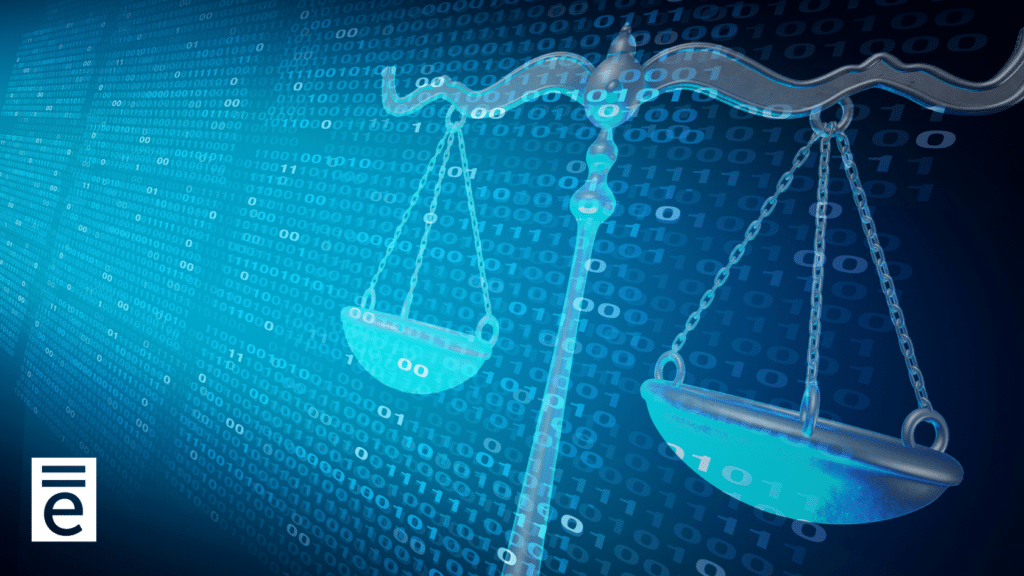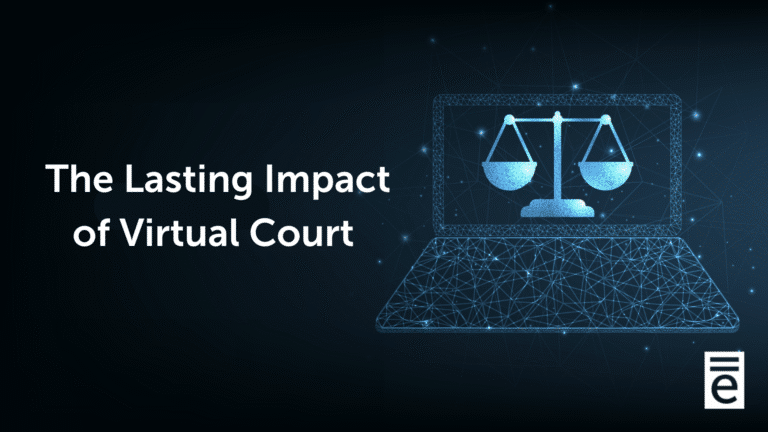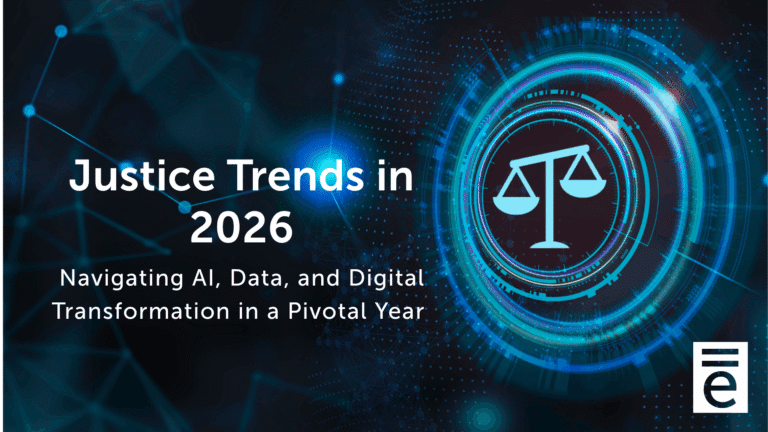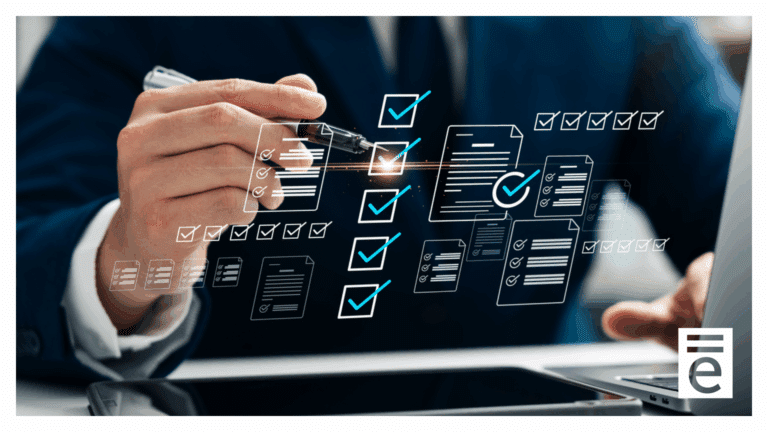Effective data governance is essential in the justice industry. Accurate data capture and adherence to standards make it easier for agencies to communicate and share data with one another. Additionally, by maintaining trustworthy and reliable data, the justice system supports informed decision-making, transparency, and public trust. It’s frustrating to complete simple tasks like running routine reports and having inaccurate data returned because something like a state abbreviation was entered in different ways. Fortunately, good data governance can prevent this.
In this blog post, we discuss the key components to effective data governance, some of the common obstacles courts and justice agencies encounter, and how to get started implementing a data governance framework.
Key Components of Effective Data Governance
Effective data governance in the justice industry relies on several key components, with security being one of the most important. Protecting sensitive information, such as criminal data, is essential to maintaining public trust and ensuring compliance with legal requirements. Regulatory compliance plays a significant role in maintaining consistency and reliability across different jurisdictions.
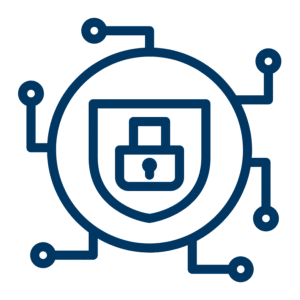
In addition to security, effective data governance also relies on integrity. Data integrity is a comprehensive term that encompasses conformity to standards, accuracy, and reliability. Without data integrity, courts won’t have a source of truth, and overall efficiency and fairness will suffer.
Obstacles to Establishing Effective Data Governance
Although data governance is important to the justice industry, there are still many courts that struggle to implement effective frameworks due to several common obstacles. Some of these obstacles include:
- Non-Standard Rules: Non-standard rules across different jurisdictions pose a major obstacle to data integrity. While counties might follow state standards, issues arise when dealing with national standards, complicating data exchange and consistency. This lack of uniformity makes it difficult to maintain a cohesive data governance framework.
- Data Sharing Challenges: Data sharing is challenging when data is captured differently across various agencies and systems. This lack of uniformity complicates data exchange and integrity, making it difficult to maintain consistent and accurate information.
- Manual Processes: Manual data capture processes can introduce human error, further complicating data integrity. Standardized and automated processes are needed to reduce these errors and improve data accuracy. Relying on manual processes not only increases the risk of errors but also slows down data management efforts, making it harder to achieve effective governance.
- Agency Autonomy: The autonomy of different agencies, such as law enforcement, courts, and prosecutors, complicates the adoption of uniform data governance frameworks. When agencies operate independently with their own data collection methods, it makes it challenging to implement standardized practices across the board.
- Need for Enablers: Enablers, such as partners with deep domain knowledge and experience, are needed to help agencies implement data governance frameworks from the ground up. These enablers can provide the necessary support and technology to facilitate the process, ensuring that data governance practices are effectively adopted.
The justice industry should address these obstacles on a wider scale to implement robust data governance practices across the sector. By standardizing rules, improving data sharing mechanisms, automating processes, and leveraging the expertise of enablers, the justice system can enhance data integrity and reliability, ultimately supporting better outcomes and greater public trust.
However, addressing these obstacles across the whole industry will take time. Your court shouldn’t wait to implement a data governance framework. Start by tackling some of the obstacles that your court can face on its own. For example, look for an enabler/partner who can support you with the right expertise and technology. You can also examine your internal processes and work to automate some of your manual processes.
The Role of AI in Data Governance
So what role does AI play in all of this? It has been a hot topic in the justice industry for a while and shows no signs of slowing down. AI has significant potential to enhance data management processes by automating tasks, improving data quality, and providing advanced analytics. However, having a good data governance framework in place before leveraging AI is essential. Without a solid governance framework, the data used by AI systems could be unreliable or insecure, leading to flawed insights and potential breaches.
The conversation around AI is driving data governance to the forefront, making it a critical topic for organizations to address. Proper data governance is necessary to ensure that AI systems operate on accurate, secure, and well-managed data.
Implementing Data Governance Frameworks
Every court is different and will therefore be in a different place with data governance. No matter where your court is in the process, familiarizing yourself with the NCSC’s National Open Data Standards (NODS) is a good place to start. NODS provides a clear framework for data exchange and is accessible to non-technical users, making it particularly beneficial for new judicial officials or court administrators. This structured approach helps overcome barriers of non-uniformity and lack of expertise by offering standardized guidelines for data management. By adopting NODS, courts can ensure consistent and efficient data governance practices, facilitating better data integrity, security, and usability across the judicial system.
In addition to NODS, you should familiarize yourself with the OASIS Electronic Court Filing (ECF) Standard. The standard is an example of a robust data governance framework. ECF is widely adopted and provides a clear structure for data exchange in the justice industry.
Effective data governance is essential for the justice industry to ensure data accuracy, security, and integrity. By addressing the challenges and implementing frameworks like NODS and ECF, justice organizations can enhance their data management processes, maintain public trust, and leverage advanced technologies like AI. If you’re looking for a partner/enabler to assist your court in implementing effective data governance, contact us.
